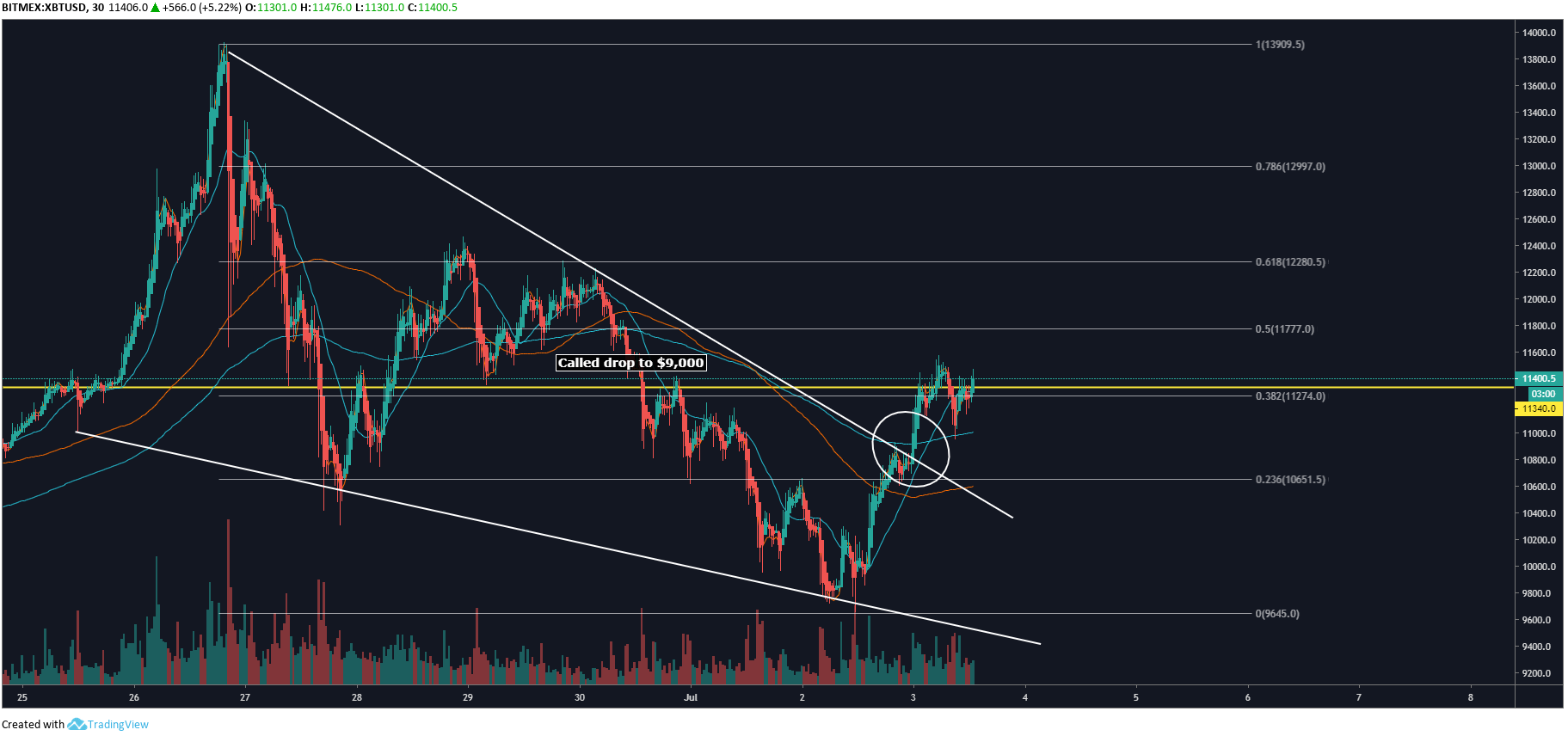Bitcoin has seen a correction in price action from the yearly high just shy of $14,000 down to $9,600 predicted in my previous analysis just a few days ago. Descending channel has broken to the upside within the last 24 hours resulting in price levels returning back to POC (Point of Control) around $11,300.
Bitcoin 30-Minute Chart
 BTC on the 30 minute chart clearly shows the most recently formed descending channel. The price action has seen bearish momentum come to a crashing stop around $9,800 as bulls regain control and force a breakout to the upside. The current market price is sitting around visible range POC and 0.382 retracement fib level, where it is now increasingly likely to rise back up to yearly highs over the coming weeks of July.
BTC on the 30 minute chart clearly shows the most recently formed descending channel. The price action has seen bearish momentum come to a crashing stop around $9,800 as bulls regain control and force a breakout to the upside. The current market price is sitting around visible range POC and 0.382 retracement fib level, where it is now increasingly likely to rise back up to yearly highs over the coming weeks of July.
The most recent breakout should provide confidence again for buyers, and eventually escalate into FOMO.
We could see Altcoins struggle to show any promising opportunities to enter whilst BTC continues on upwards.
Minimize Risk, Maximize Potential on Your Entries/ Exits

The best method to catch dip entries and breakout entries on both Bitcoin and other altcoins, is known as ”scaling”, where a trader buys/sells in small increments over a period of time to achieve the best dollar cost average. Typically, this is seen on larger time scales for traditional markets like the stock market, however, this technique works wonders for managing risk when trading crypto within shorter time frames.
The primary reason for implementing a dollar cost average technique, when entering or exiting market positions, is to minimize risk by neutralizing short term volatility. However, this routine method also removes irrational and emotional decision making from the process.
By scaling in and out of the market, a trader allows his/herself the ability to stop worrying about the market and intra-minute / intra-hour chop, because they are executing a pre-defined strategy.
There is no set in stone % that a trader should be scaling out at either price point. However, off-loading 25% of their position at each (3) profit targets leaves them with the remaining 10/25% of their full position still in the coin, should they think the price will go higher.
The whole idea behind ”scaling” in and out of market positions is to average in the best cost-effective entry whilst managing risk. This allows a trader to adopt a flow with the market and stagger their entries into three positions, as opposed to going ‘all in’ on one point. This is called ”running with the trend”, where a trader is simply buying as the trade goes in their favor.
This means if the crypto asset ”fakes out” and dumps, a trader will only lose on a % of their full intended market position.
Adversely, when you scale out of your position (taking profit, or stop loss) you allow the trade room to grow instead of panicking and taking profit too early, setting out clear profit/exit points take away the emotional decision making (panic selling).
Do you use dollar cost averaging as a part of your trading plan? Let us know in the comment section below!
Images courtesy of Tradingview, Shutterstock











